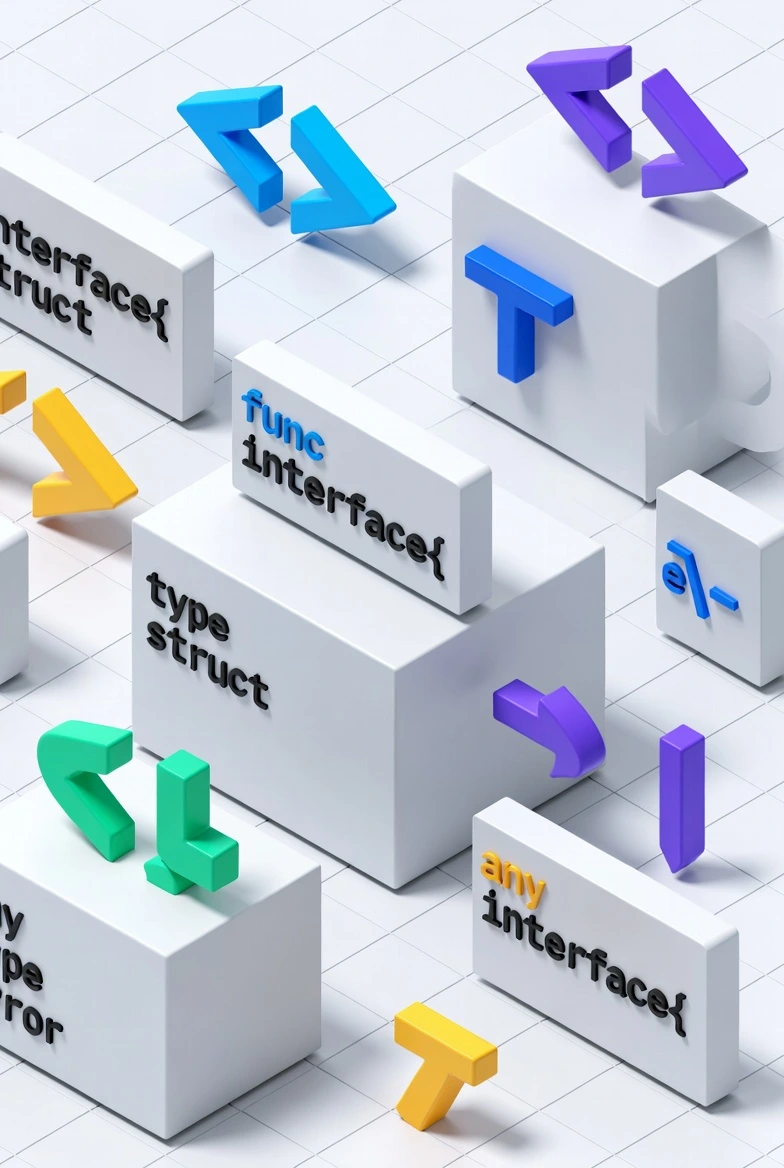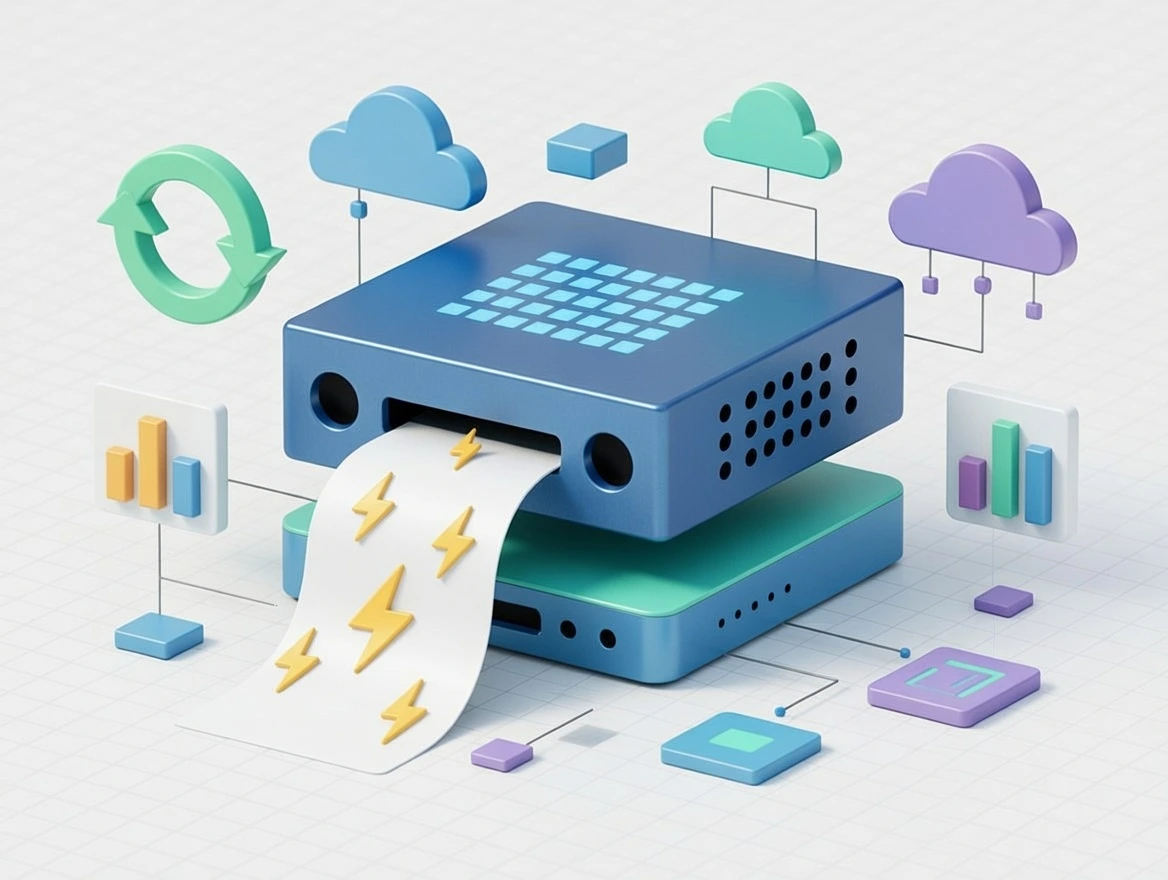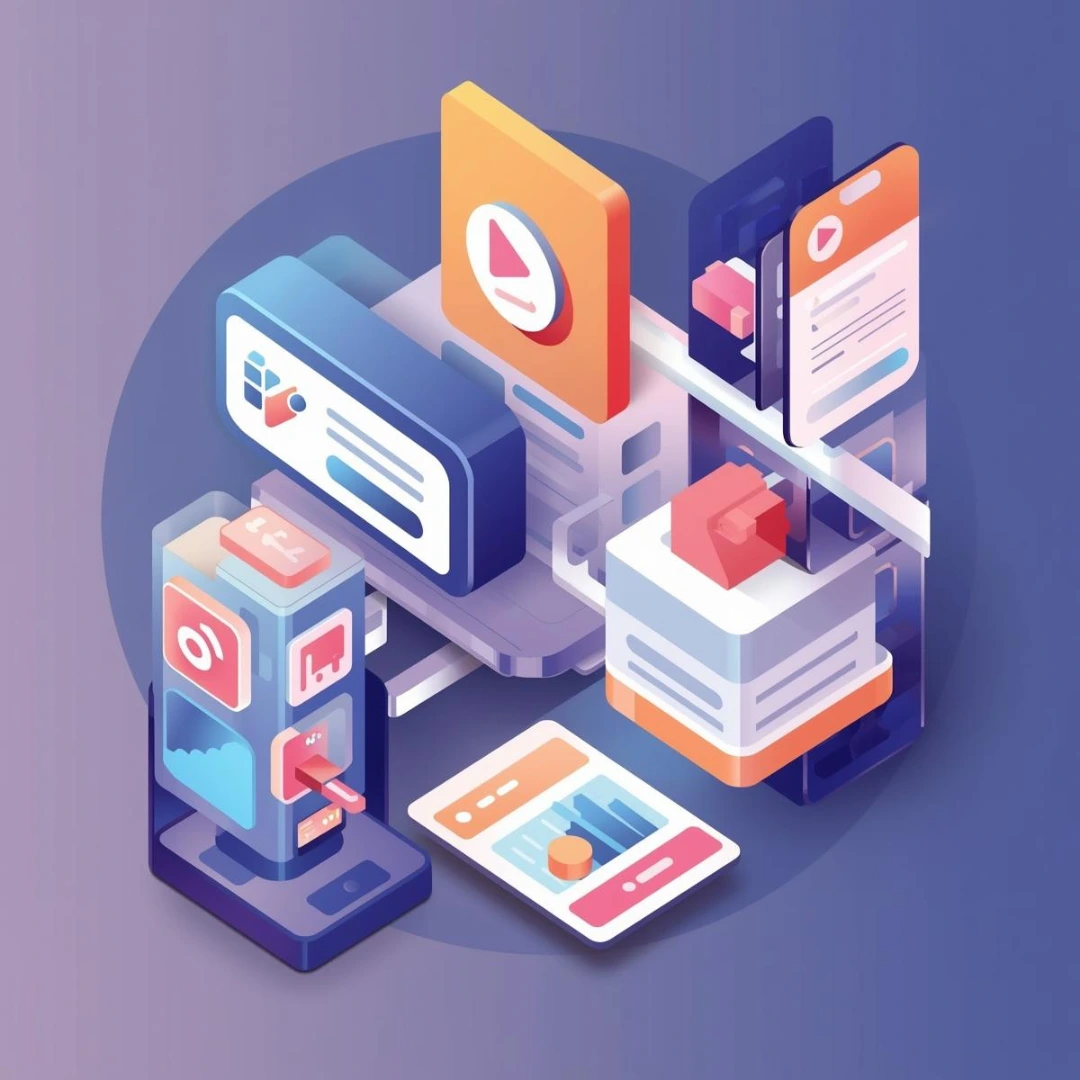.webp)
Emwiongbon Ivie Maryann
C.ITP Emwiongbon Ivie Maryann, MCPN, is a software developer focused on responsive, accessible, user‑centered web apps using React, TypeScript, and Next.js. . Chartered IT Practitioner and MCPN member; author of "Boilerplate Blueprint."
Article by Gigson Expert
If you’ve been in software development for a while, you’ve probably come across .NET. Microsoft’s powerful, versatile framework has shaped modern application development for more than two decades. From its early days as a Windows-focused platform to its evolution into the open-source, cross-platform .NET Core and now the unified .NET 8, it has consistently adapted to industry needs.
At its core, .NET provides developers with a rich ecosystem for building applications across web, desktop, mobile, cloud, and even gaming environments. Whether you’re creating enterprise-grade systems or lightweight microservices, .NET offers the tools, libraries, and performance optimizations to help you deliver at scale.
For developers entering the field today, .NET isn’t just “legacy Microsoft tech”, it’s a modern, forward-looking platform that continues to thrive in 2025 and beyond. Let’s dive into why it matters, what makes it so powerful, and how you can use it in your projects.
.NET Framework vs .NET Core vs .NET 8: A Brief History
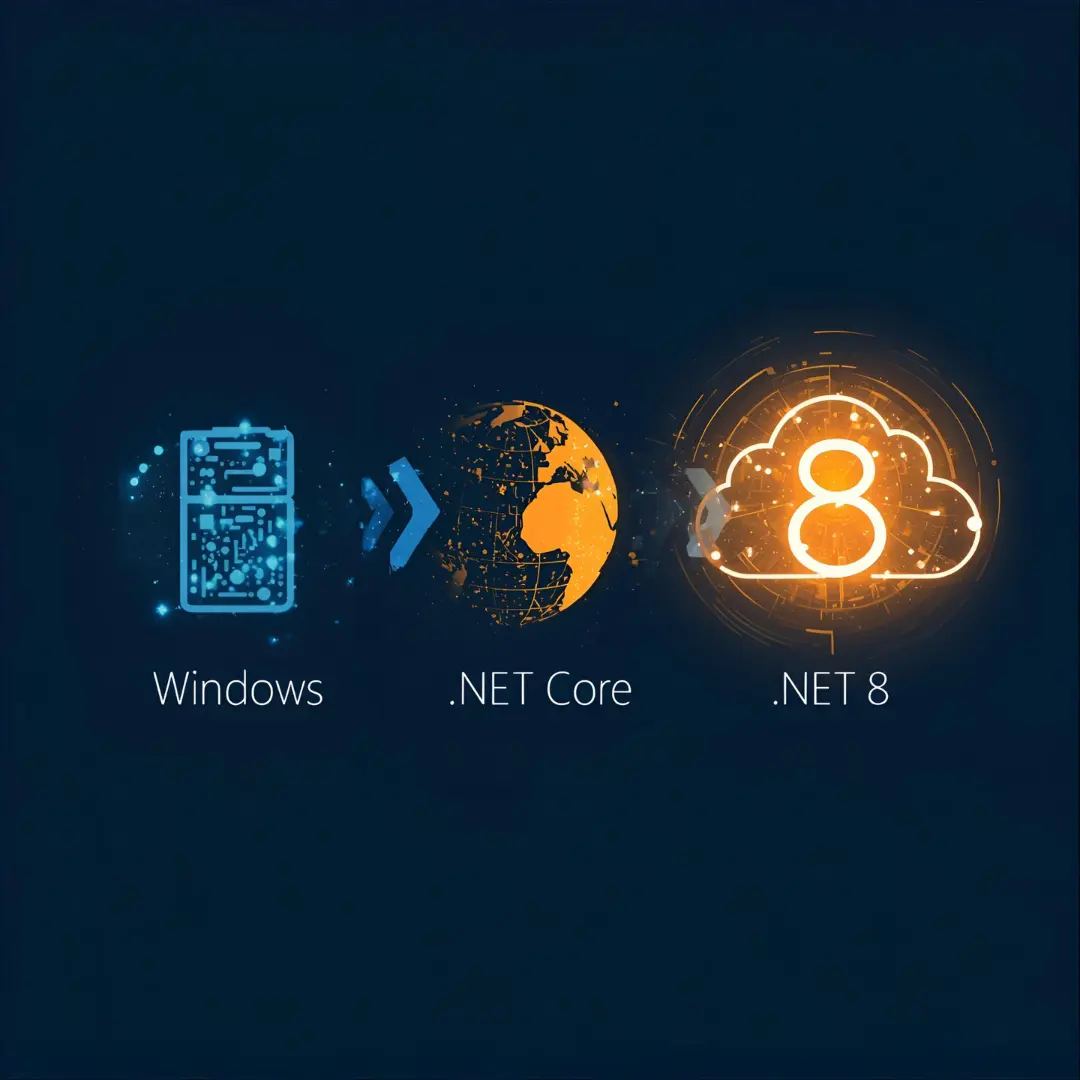
Microsoft first introduced the .NET Framework in the early 2000s to help developers build Windows applications more efficiently. Over time, the framework expanded to web applications (ASP.NET) and enterprise systems.
In 2016, Microsoft released .NET Core, a cross-platform, open-source reimagining of .NET, designed to run on Windows, Linux, and macOS. This move made .NET far more flexible and modern.
By 2020, Microsoft unified the ecosystem under .NET 5 and beyond, officially dropping the “Core” name. Today, simply known as .NET, the platform continues to evolve — with versions like .NET 6, 7, and 8 offering improved performance, cloud integration, and support for AI-driven workloads.
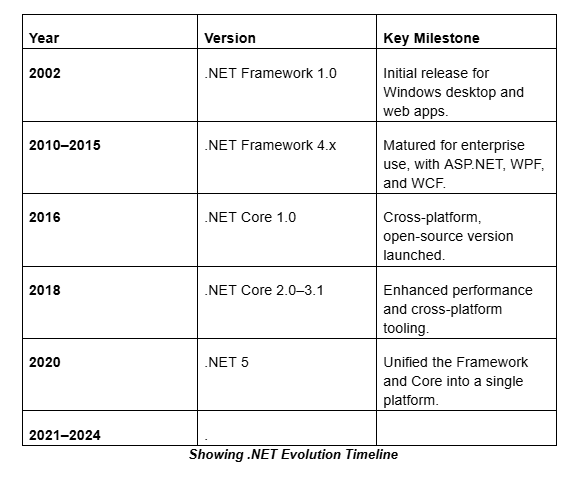
Key Features of .NET
.NET stands out for its robust features that support diverse development needs:

.NET Architecture at a Glance
The strength of .NET lies in its modular and developer-friendly architecture. Instead of being a rigid, one-size-fits-all system, it is built from a set of layers and components that work together to provide flexibility and consistency across platforms.
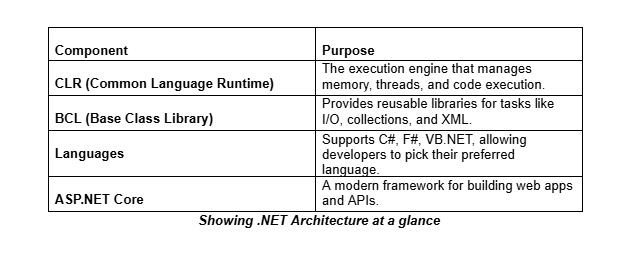
Here is a Simplified Flow:
Code Languages (C#/F#/VB) → CLR (execution) → BCL (reusable libraries) → Output (desktop/web/mobile app)
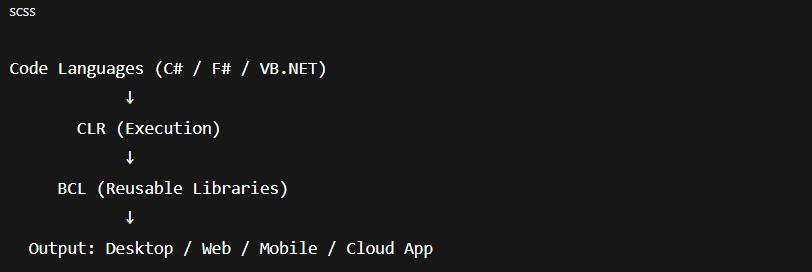
What Can You Build with .NET?
One of the reasons .NET remains more popular than many other frameworks is its versatility. It isn’t tied to a single type of application; instead, it gives developers the flexibility to work across platforms and industries. With .NET, you can build:
- Web Applications – With ASP.NET Core, you can create scalable APIs and dynamic websites.
- Mobile Applications – Using .NET MAUI (Multi-platform App UI) and Xamarin, you can target iOS and Android.
- Desktop Applications – Windows Presentation Foundation (WPF) and WinForms are great for desktop apps.
- Cloud-Native Apps – Tight integration with Microsoft Azure makes .NET a natural fit for the cloud.
- Games – Unity, one of the most popular game engines, runs on C# and .NET.
- IoT & AI/ML Projects – .NET supports IoT devices and integrates with ML.NET for machine learning.
Advantages of Using .NET
Why should developers consider .NET in 2025 and beyond? The answer lies in a blend of maturity, performance, and future readiness:
- Performance – Optimized for speed with minimal memory footprint.
- Productivity – Rich tooling with Visual Studio, JetBrains Rider, and VS Code support.
- Security – Built-in features like code access security and authentication libraries.
- Community Support – A massive ecosystem with NuGet packages and strong documentation.
- Scalability – From startups to enterprises, .NET can handle apps of any size.
Challenges / Limitations of .NET
While .NET is powerful and versatile, it’s not without its trade-offs. Some of the key challenges include:
- Ecosystem Complexity – With multiple frameworks (ASP.NET Core, MAUI, WPF, Blazor, etc.), choosing the right approach for a project can be confusing for beginners.
- Cross-Platform Maturity – Although .NET Core and .NET 7/8 have greatly improved cross-platform support, some advanced features still work best on Windows, especially in desktop development.
- Learning Curve – Developers coming from JavaScript, Python, or PHP may find C# and .NET concepts (like async/await, LINQ, and dependency injection) harder to grasp initially.
- Heavy Tooling – Visual Studio (the flagship IDE) is powerful but also resource-intensive; lightweight alternatives like VS Code may lack some advanced debugging features.
- Community vs. Java/Python – While .NET’s community is strong and growing, Java and Python still dominate academic environments and open-source ecosystems, which can sometimes make .NET feel more enterprise-focused.
- Platform Lock-In Concerns – Even though .NET is open-source and cross-platform now, some developers worry about Microsoft-driven direction and possible vendor lock-in (e.g., Azure services).
- Performance Trade-offs in Certain Cases – For high-performance computing or low-level system tasks, languages like C++ or Rust may still offer an edge.
That said, most of these limitations are contextual rather than absolute. With each new release, Microsoft and the open-source community continue to refine and optimize the platform, addressing pain points around performance, tooling, and ecosystem support.
Despite these challenges, .NET continues to power mission-critical systems at a global scale, proving its reliability and adaptability across industries.
Real-World Use Cases & Companies Using .NET
.NET is used across industries and at scale. Its flexibility allows it to power everything from enterprise-grade applications to consumer-facing mobile apps and even cloud-native solutions. Banks and financial institutions rely on it for secure transaction systems, while healthcare providers use it for patient management and electronic health records. Startups and tech companies also adopt .NET for building scalable APIs, SaaS products, and cross-platform apps thanks to its efficiency and strong tooling support.
Some notable examples include:
- Microsoft Products – internal products like Office, Teams, and Azure services.
- Stack Overflow – the world’s largest high-traffic Q&A platform built on ASP.NET for developers.
- Siemens – industrial automation and engineering applications.
- Alibaba – e-commerce platforms and services.
- Dell – enterprise software solutions.
- UPS – logistics and tracking systems.
- Finance & Healthcare – Many enterprise-grade apps rely on .NET for security and compliance.
Getting Started with .NET (for Developers)
Are you ready to try .NET? Here’s how to get started. You’ll need to run some basic installations, download Visual Studio and Visual Studio Code, which include built-in support for debugging, templates, and project management. With just a single command (dotnet new), you can scaffold applications and start building right away. Let’s get you started:
- Install the .NET SDK – Download it from the official .NET site.
- Create Your First App – Run this from the terminal:

Sample “Hello World” in C#:

- Build a Simple Web API – With ASP.NET Core, you can spin up a minimal API in seconds:

Minimal API Example:

- Explore Tutorials – Microsoft Docs and community blogs provide hands-on guides.
Over the years, .NET has evolved from a Windows-only framework into a powerful, cross-platform, open-source ecosystem. It empowers developers to build web, mobile, desktop, cloud, and even gaming applications, all with strong performance and reliability.
For developers, learning .NET isn’t just about adding another framework to your toolbox. It’s about embracing a versatile platform backed by decades of innovation and a thriving community.
Whether you’re new to programming or an experienced developer exploring cross-platform solutions, .NET is a framework worth mastering.
Key Takeaways
- .NET is a unified, cross-platform framework for building web, mobile, desktop, cloud, and IoT applications.
- The evolution from .NET Framework → .NET Core → .NET 8 reflects Microsoft’s shift toward open source, performance, and flexibility.
- Developers benefit from multi-language support, powerful libraries, and consistent tooling across platforms.
- Despite some limitations (like ecosystem size for non-Windows systems), .NET remains one of the most robust and enterprise-ready platforms.
- With each new release, .NET continues to improve in speed, scalability, and developer experience.
FAQs
1. Is .NET free to use?
Yes, .NET is fully open-source and free under the MIT License.
2. What’s the difference between .NET Framework and .NET Core?
The .NET Framework is Windows-only, while .NET Core (now unified into .NET 5+) is cross-platform.
3. Can I build mobile apps with .NET?
Yes. With .NET MAUI (and previously Xamarin), you can build apps for iOS and Android.
4. Which programming languages work with .NET?
Primarily C#, F#, and VB.NET.
5. What IDEs can I use for .NET development?
Visual Studio, JetBrains Rider, and Visual Studio Code are popular choices


